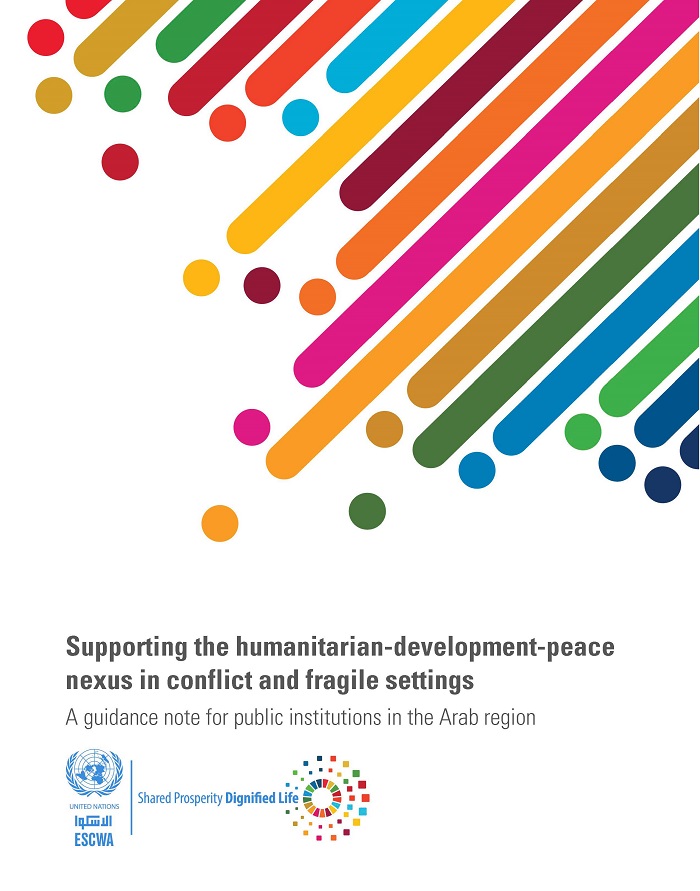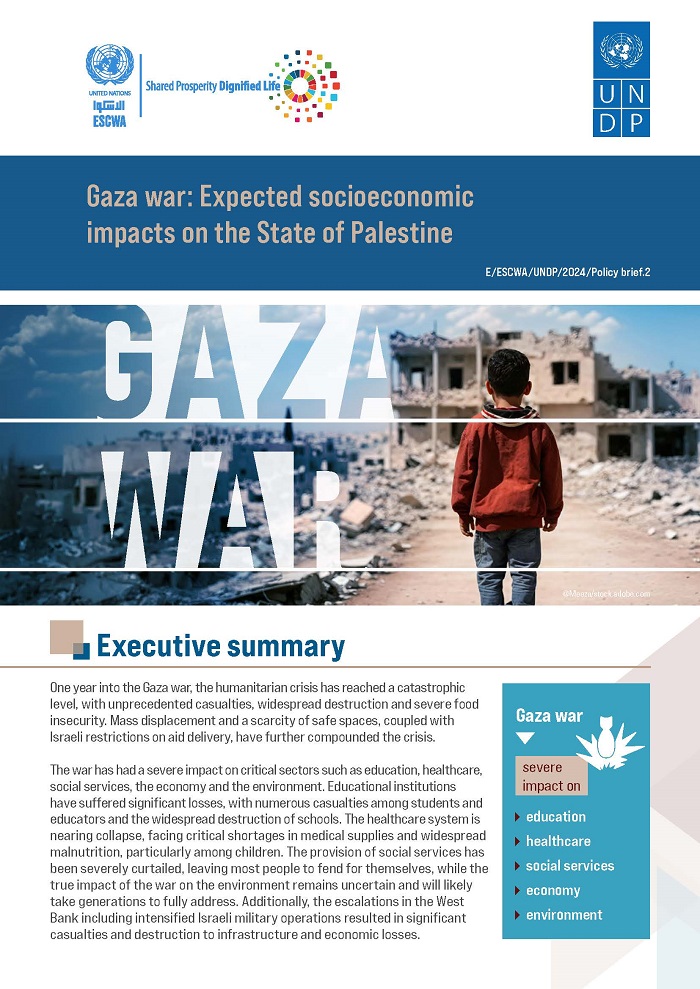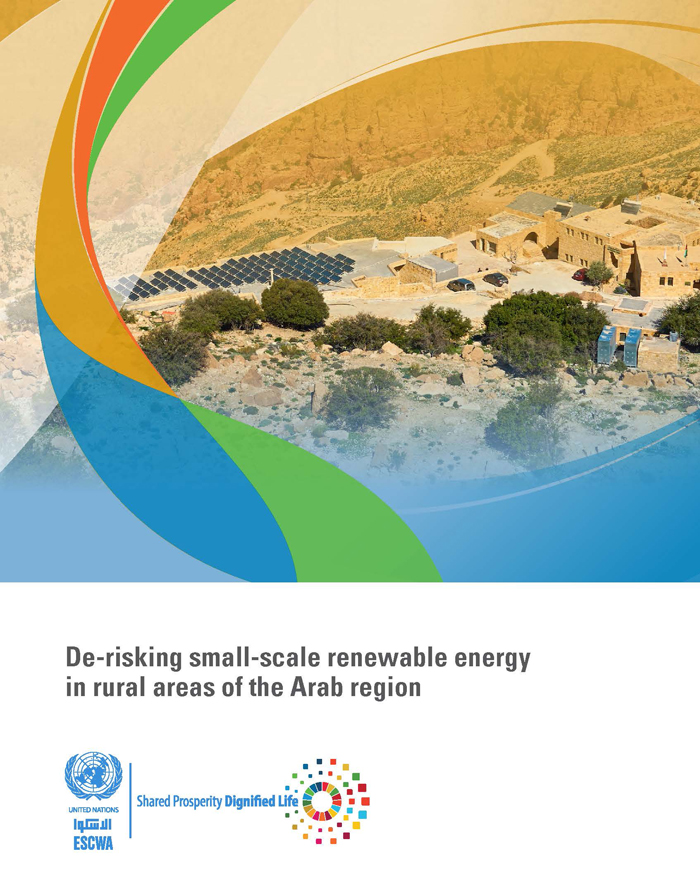
ESCWA Publication: E/ESCWA/CL6.GCP/2022/TP.3
Country: Arab region
Publication Type: Information material
Cluster: Governance and Conflict Prevention
Focus Area: Climate change, Debt and fiscal policy, Resilient development & conflict prevention
Initiatives: Governance and institution building, Integrated national financing frameworks, Women, peace and security, Advancing water and food security, Public finance and inclusive fiscal policy
SDGs: Goal 8: Decent Work and Economic Growth, Goal 9: Industry, Innovation and Infrastructure, Goal 11: Sustainable Cities and Communities, Goal 13: Climate Action, Goal 16: Peace, Justice and Strong Institutions
Keywords: Arab countries, Capacity building, Humanitarian assistance, Development, Peacebuilding, Public institutions, Sustainable development, Policy making, Governance, Financing, Funds, Armed conflicts, Peace
Supporting the humanitarian-development-peace nexus in conflict and fragile settings
March 2023
This paper aims to provide action-oriented guidance to operationalize the humanitarian-development-peace nexus approach among public institutions in the Arab region. Protracted and complex crises require long-term and sustainable solutions. Integrating humanitarian, development and peace efforts can reduce service delivery gaps and duplications, while simultaneously addressing the root causes of the crises and facilitating the transition from response to recovery and sustainable development. Despite clear benefits of the humanitarian-development-peace nexus approach, this strategy is not always adopted. A key challenge for public institutions, who are often tasked with the responsibility of addressing crises within their territories, is a lack of support for their efforts.
This paper discusses the opportunities offered and challenges faced when putting the principles of the humanitarian-development-peace nexus into practice in fragile and conflict affected Arab countries. The paper outlines a conceptual framework and a roadmap for building the institutional capacities of governments. In the conclusion, capacity building modules to strengthen institutional capacities are presented.
Related content
Climate change
, Debt and fiscal policy
, Resilient development & conflict prevention
,
This paper aims to provide action-oriented guidance to operationalize the humanitarian-development-peace nexus approach among public institutions in the Arab region. Protracted and complex crises require long-term and sustainable solutions. Integrating humanitarian, development and peace efforts can reduce service delivery gaps and duplications, while simultaneously addressing the root causes of the crises and facilitating the transition from response to recovery and sustainable development. Despite clear benefits of the humanitarian-development-peace nexus approach, this strategy is not always adopted. A key challenge for public institutions, who are often tasked with the responsibility of addressing crises within their territories, is a lack of support for their efforts.
This paper discusses the opportunities offered and challenges faced when putting the principles of the humanitarian-development-peace nexus into practice in fragile and conflict affected Arab countries. The paper outlines a conceptual framework and a roadmap for building the institutional capacities of governments. In the conclusion, capacity building modules to strengthen institutional capacities are presented.



